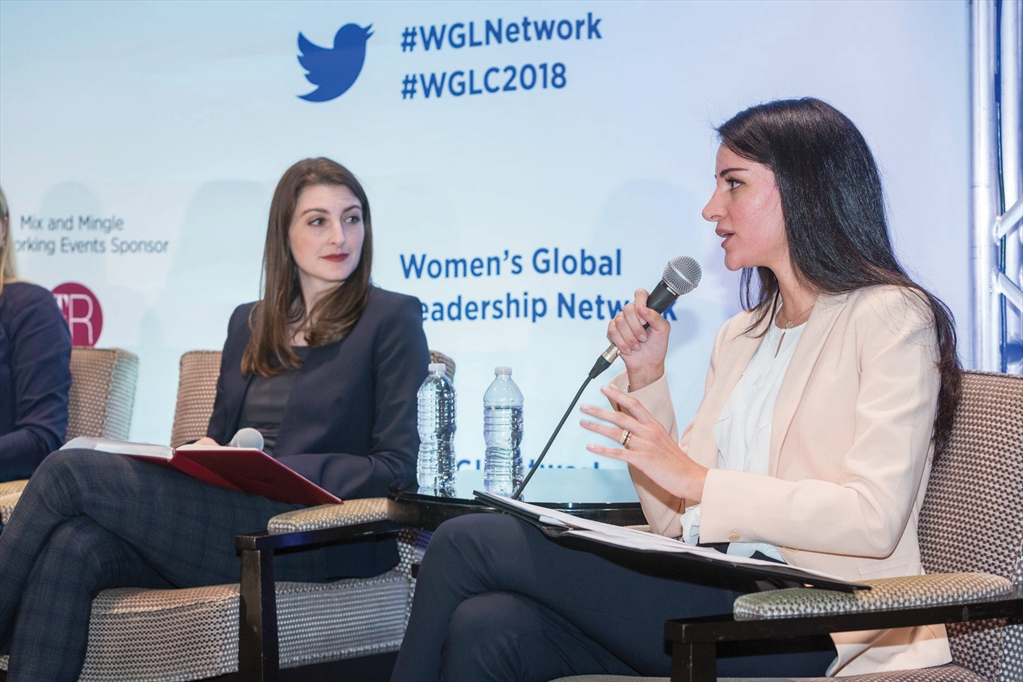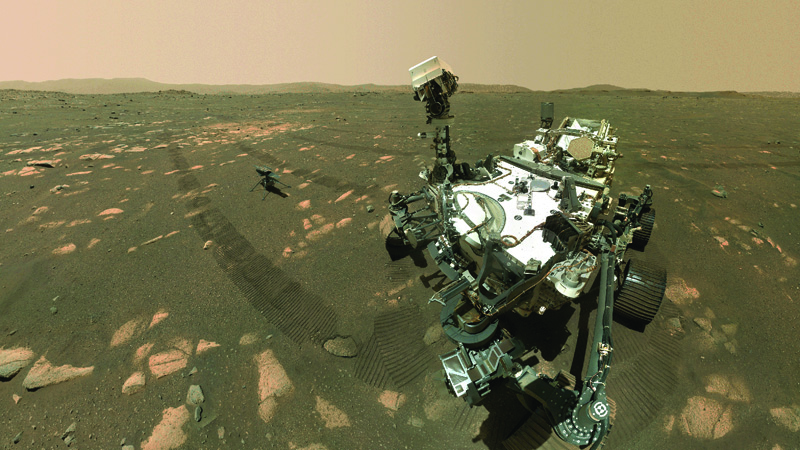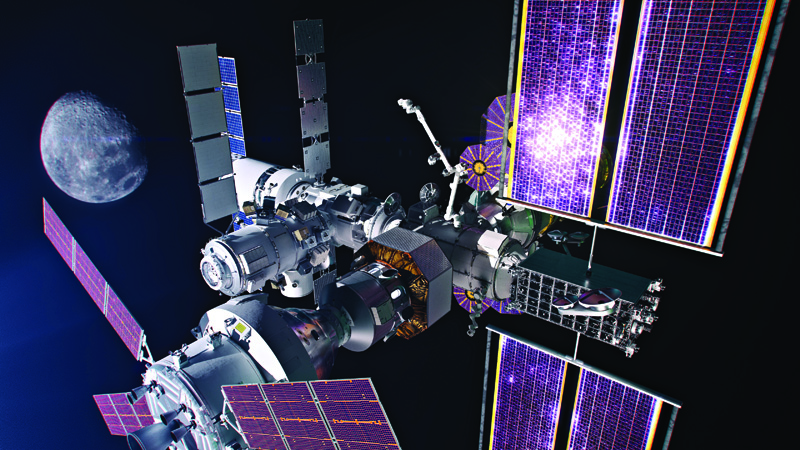You Can't Hide The Sun
By: Carson Vaughn | Categories: Alumni Achievements

She was an hour late, they said. This never happened. Even back then, in 2002, Suha Kayum was punctual, orderly, prepared. Khabbeh qirshak al-abyad la-yawmak al-aswad, her mother often told her. Save your white penny for your black day. And yet there she was, standing at the proctor’s desk at 9:00 a.m. sharp, all the other 10th-graders crunched over their desks, scribbling away. They couldn’t give her extra time, they said, but she could race to catch up.
Instead of tearing open the exam and scribbling away, Kayum calmly took a seat, double-checked the clock, and formulated a schedule that would put her back on track. Only then did she begin, moving forward systematically, like the engineer she was bound to become. With minutes left, the proctor approached her desk. If she needed more time, they said, the British Consul, which administers the International General Certificate of Secondary Education, would allow it after all.
“Oh, no,” she said, stacking the pages. “I’m fine.”
She hadn’t always been a top student, but she aced the exam.
“I realized that I work really well under pressure like that,” she says. “It might sound weird, but I actually enjoyed it.” And thus, Suha Kayum went looking for more.
Growing up in Dhahran, a city in the Eastern Province of Saudi Arabia, Kayum used to dream of working for Saudi Aramco. When she says, “It’s not a dream, but a lifestyle,” she’s not peddling company propaganda: She means it literally. In the 1930s, Standard Oil established a camp in Dhahran for oil exploration, which would become a massive residential community for the world’s largest oil producer. It’s still very much in use today, housing nearly 11,000 employees. Her aunt and great-uncles worked there when she was a kid, and her aunt often brought her inside the community. “It’s kind of like a mini-America in Saudi,” Kayum says. “It’s just fascinating.”
A civil engineer, Kayum’s father ran his own business, contracting with electric utilities all over Saudi Arabia on high-voltage transmission projects. To Kayum, he seemed almost preternaturally unflappable. No matter the problem, personal or professional, he calmly worked through it, one step at a time. And he saw flashes of the same in his daughter. In Saudi culture, “the ultimate thing is to be a doctor,” she says, but when she began to excel in technical subjects like geometry and physics, he encouraged her to follow his own trajectory. When he roped her into building the website for his engineering firm, her dreams began to take shape.
“That’s where I felt like I could combine those two and actually be a computer engineer,” she says. “You have the computer science aspect, but you still have the electrical engineering aspect, as well.”
But the path was hardly clear. Educational opportunities for women in Saudi Arabia, though gradually dawning, were severely limited when Kayum was approaching high school graduation in 2004.
“The only option that was remotely close to any engineering was interior design in architecture school. That’s it,” she says.
She was quickly accepted into the local interior design program, but she also applied for a dual-degree program at Agnes Scott College and Georgia Tech, one of the top computer engineering programs in the world. She soon had two opportunities on her plate—assuming her father would approve her travel to the states—and though one was clearly more aligned with her goals, it was hardly an easy decision.
“I wanted to [go abroad], but at the same time, there’s this fear,” she says. “Being a female and being alone and all that—it was a tough choice.”
What she didn’t know was that her father had already booked her a ticket to Atlanta.
Kayum Passed the next five years at Georgia Tech on a scholastic carousel, endlessly rotating between the library, the student center, Starbucks, Tech Square—a stack of books in her hand and her nose in one, too. She also worked part-time as a research assistant at the Georgia Tech Research Institute, where she focused on network security. And somehow, in the cracks, she found time to volunteer, even helping to establish the Atlanta chapter of the Palestine Children’s Relief Fund, a nonprofit that provides free medical care to sick or injured children in the Middle East. The experience was incredibly fulfilling, she says, but beyond that, she was “a super nerd.”
After Tech, she was hired for a software engineering position at Endgame in Atlanta, where she quickly put her network security experience to use.
“My main work there was dealing with really big data,” she says. “That’s where I actually started my love for high-performance computing, which is trying to solve not just problems, but really large problems that you can’t solve on a single machine. You need to have parallel machines cranking at the same time.”
Kayum stuck with Endgame for a year before finally returning to Dhahran, where she soon began consulting with Saudi Aramco on GigaPOWERS, the company’s second-generation in-house reservoir simulator, to model how oil moves through the earth’s crust during extraction. “That was my foot in the door,” she says, and just two years later, her personal fairy tale came true. Aramco offered Kayum her dream job as a full-time systems analyst in the computational modeling division at its Upstream Advanced Research Center.
“It felt too good to be true,” she says. “When I was in college, I remember seeing a lot of people who weren’t studying as hard as me—they were partying—and I remember thinking, I know this will pay off. I’m here to be the best and go back and pursue my dreams. And so, it felt like it finally paid off.”
But the hire was mutually beneficial, and Aramco quickly reaped the rewards. Kayum first helped design the interface for the GigaPOWERS software, and later joined the basin simulator team, which focused not on oil recovery, but oil discovery. Whereas reservoir simulation mirrors a roughly 70-year period, basin simulation, which models the shifting of tectonic plates, traces a timeline spanning 500 million years.
“Our group urgently needed a member on the Basin Simulator Development Team, which was an entirely different area of geoscience,” says Dr. Kesavalu Hemanthkumar, a former senior petroleum engineering consultant for Aramco. “Suha was asked to work on that team, which was very new to her, but she had no hesitation. She worked very hard to learn the fundamentals and slowly started contributing and eventually became a core member of the team.”
So core, in fact, that in just nine months, she developed a complex algorithm—capable of running in parallel thousands of computers—to simulate hydrocarbon migration.
Her algorithm enabled the first billion-cell basin simulation run, and last year was granted a U.S. patent. “Seeing people within the company using the software that I develop or the features that I make is the most rewarding thing ever,” she says.
She eventually pivoted back to the GigaPOWERS team, where she became the Advanced Research Center’s first female “Focus Area Champion.” Like the parallel algorithm she patented, Kayum herself runs simultaneously across multiple platforms. When she’s not focused on the engineering itself, she’s serving as an Aramco ambassador, introducing visitors to their latest technologies; she’s speaking at international conferences; and perhaps most importantly, she’s advocating for women in STEM. In 2017, she connected with the Society for Petroleum Engineers, who expressed the need for more female role models in the industry. Before long, she found herself visiting Saudi schools and speaking with young girls who hadn’t considered a future in the sciences.
“I am actually meeting females at a pivotal point in their lives where I can steer them in a direction they never imagined,” she says. “This is something that’s super fulfilling both personally and professionally.”
But never one to rest on her laurels, Suha Kayum is always searching for the next challenge.
“There are going to be obstacles at work. There are going to be experiences that might not be that great. You might happen to not get much support at certain points in life. But that’s fine,” she says. “You just keep going. You can’t really hide the sun.”


